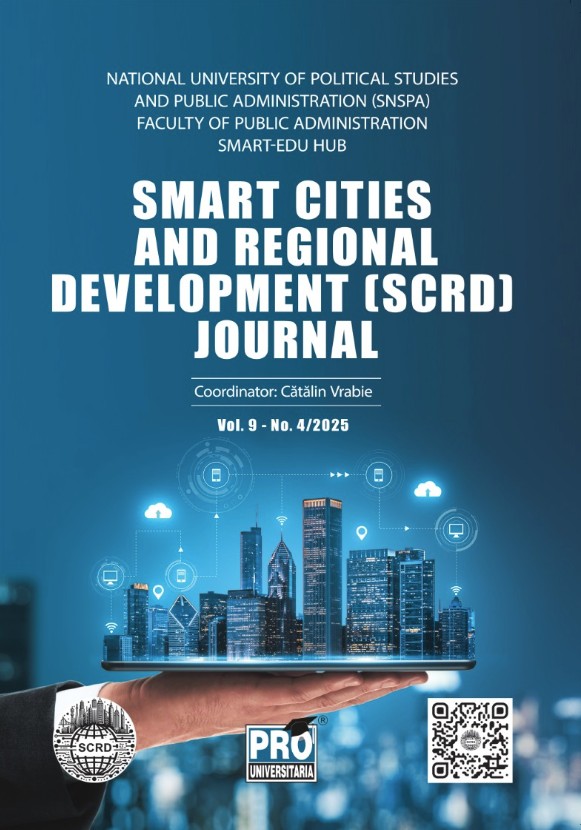Cultivating organizational culture for AI integration: A framework for Smart Cities and Regional Development
DOI:
https://doi.org/10.25019/cmstt369Keywords:
organizational culture, artificial intelligence governance, public sector transformation, institutional capacity building, digital innovation governanceAbstract
Objectives: This study addresses the gap between technological capability and organizational readiness in Artificial Intelligence (AI) integration within smart cities and regional development. It aims to establish a framework for understanding how organizational culture influences AI implementation success, focusing on cultural prerequisites that enable or constrain digital transformation. Prior work: Existing literature emphasizes technical and regulatory aspects of smart cities governance and digital transformation, with limited attention to organizational culture dynamics. The OECD’s governance frameworks and research on public sector modernization provide foundational understanding, but systematic cultural assessment methodologies for AI readiness remain underdeveloped. Recent developments in organizational culture measurement offer emerging evidence from transformation initiatives across sectors. Approach: Drawing from four decades of experience in public administration, governance reform, and institutional capacity building across regions like the Middle East, Africa, South-East Asia, and Europe, this conceptual paper synthesizes empirical observations from organizational transformations, public sector modernization initiatives, and international governance reform projects. The analysis incorporates insights from leading institutional reform projects, including the transformation of the International Institute of Administrative Sciences (IIAS), the establishment of the Bahrain Institute for Public Administration (BIPA) and the Middle East & North Africa Public Administration Research (MENAPAR) Network. Results: The research identifies five critical cultural dimensions for successful AI implementations: purpose alignment, collaborative capacity, learning agility, ethical clarity, and technological fluency. Organizations with strong cultural foundations across these dimensions show significantly higher transformation success rates. Cultural factors, rather than technical sophistication, primarily determine implementation outcomes in complex multi-stakeholder environments typical of smart cities initiatives. Implications: This framework provides actionable diagnostic tools for assessing organizational readiness before technology deployment. It suggests a fundamental reorientation of transformation strategies toward systematic cultural stewardship alongside technological implementation. Value: This research bridges organizational psychology and smart cities literature by introducing the first comprehensive cultural readiness framework for AI-driven urban innovation contexts, offering theoretical contributions and practical tools for governance practitioners.
Downloads
Published
Issue
Section
License
Copyright (c) 2025 Raed Mohammed BENSHAMS

This work is licensed under a Creative Commons Attribution-NonCommercial-NoDerivatives 4.0 International License.


